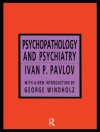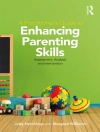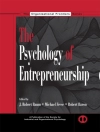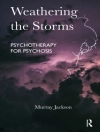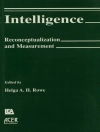Now in a fully revised and updated second edition, this authoritative resource provides a complete toolkit for designing and implementing an evidence-based school safety plan. Foremost experts guide practitioners to understand and prevent violence, bullying, and peer harassment in grades K–12. Best practices are reviewed for creating a positive school climate and establishing effective security and crisis response procedures. The authors describe ways to identify and support behaviorally at-risk students across multiple tiers of intervention, beginning with universal screening. In a convenient large-size format, the book includes reproducible planning tools. Purchasers get access to a webpage where they can download and print the reproducible materials.
New to This Edition
*Reflects over 15 years of research advances, new initiatives, and the growth of universal prevention models.
*Grounded in current positive behavioral interventions and supports (PBIS) practices; also incorporates restorative discipline, social–emotional learning, and trauma-informed practices.
*State-of-the-art behavioral screening and threat assessment methods are integrated throughout.
*Discussions of timely topics, including cyberbullying, the role and limitations of policing in schools, and racial/ethnic disparities in discipline.
This book is in The Guilford Practical Intervention in the Schools Series, edited by Sandra M. Chafouleas.
Содержание
1. History and Overview of Approaches to Safety, School Discipline, and Mental Health Support in Schools
2. Assessing and Planning for School Safety: Developing a School Safety and Crisis-Response Plan
3. Proactive Screening, Identifying Behaviorally At-Risk Students, and Threat Assessment:
Purposes, Approaches, Outcomes, and Cautions
4. Improving School Climate, Safety, and Student Health via Prevention Approaches
5. Bullying and Peer Harassment in Schools: The Current Landscape, Influencing Factors, and Screening-Identification Methods
6. Solutions for Bullying and Peer Harassment in the School Setting
7. Supporting Antisocial and Potentially Violent Youth
References
Index
Об авторе
Jeffrey R. Sprague, Ph D, is Professor of Special Education and Co-Director of the Institute on Violence and Destructive Behavior at the University of Oregon. His research interests include positive behavioral interventions and supports (PBIS), multi-tiered systems of support, alternative education, juvenile delinquency prevention and treatment, restorative practices, and school safety. Dr. Sprague coauthored the first guide to functional behavioral assessment and the first guide to schoolwide PBIS implementation, as well as several other books and over 300 journal articles and book chapters.
Hill M. Walker, Ph D, is Founder and Co-Director of the Institute on Violence and Destructive Behavior at the University of Oregon and Senior Research Scientist at the Oregon Research Institute. His research interests include social skills assessment, school safety, curriculum development and intervention, longitudinal studies of aggression and antisocial behavior, and the development of early screening procedures for at-risk students. Dr. Walker is a recipient of the Kauffman–Hallahan–Pullen Distinguished Researcher Award from the Council for Exceptional Children and the Research Award from the National Center for School Mental Health, among other honors.



